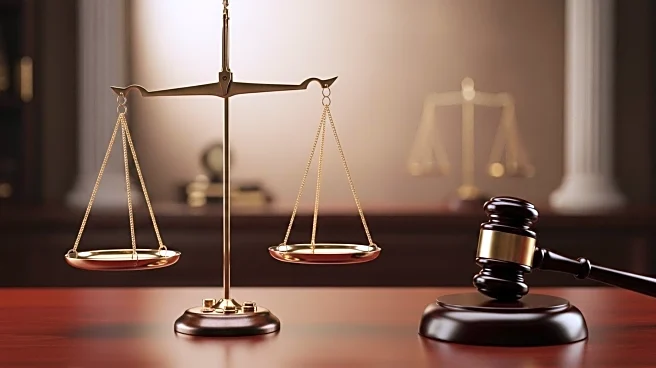What is the story about?
What's Happening?
President Trump's executive order aimed at ending birthright citizenship for children of undocumented immigrants has faced significant legal challenges. A series of federal courts, including the 1st U.S. Circuit Court of Appeals, have blocked the order, citing violations of the 14th Amendment. This amendment, established in 1868, grants citizenship to all persons born or naturalized in the United States. The courts have consistently ruled that the executive order conflicts with this constitutional right. The Trump administration has appealed to the Supreme Court, which has a conservative majority, to review the legality of the order.
Why It's Important?
The legal battles over the executive order highlight the ongoing debate over immigration policy in the United States. If upheld, the order could significantly alter the interpretation of the 14th Amendment, affecting millions of individuals born in the U.S. to undocumented parents. This could lead to changes in how citizenship is granted, impacting social services, education, and employment opportunities for affected individuals. The outcome of this legal challenge could set a precedent for future immigration policies and executive powers.
What's Next?
The Trump administration is awaiting a decision from the Supreme Court, which could either uphold or overturn the lower courts' rulings. A decision in favor of the executive order could lead to changes in how citizenship is determined, requiring proof of parental citizenship or immigration status for Social Security numbers and passports. The Supreme Court's ruling will be pivotal in determining the future of birthright citizenship in the U.S.

















